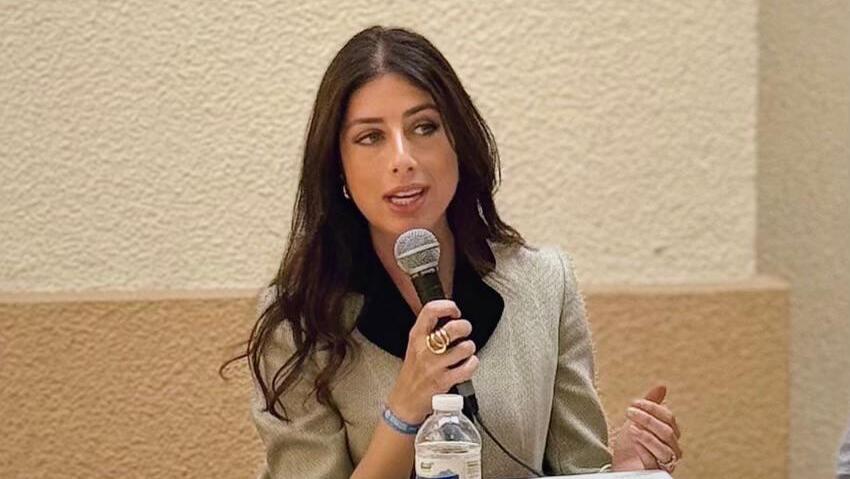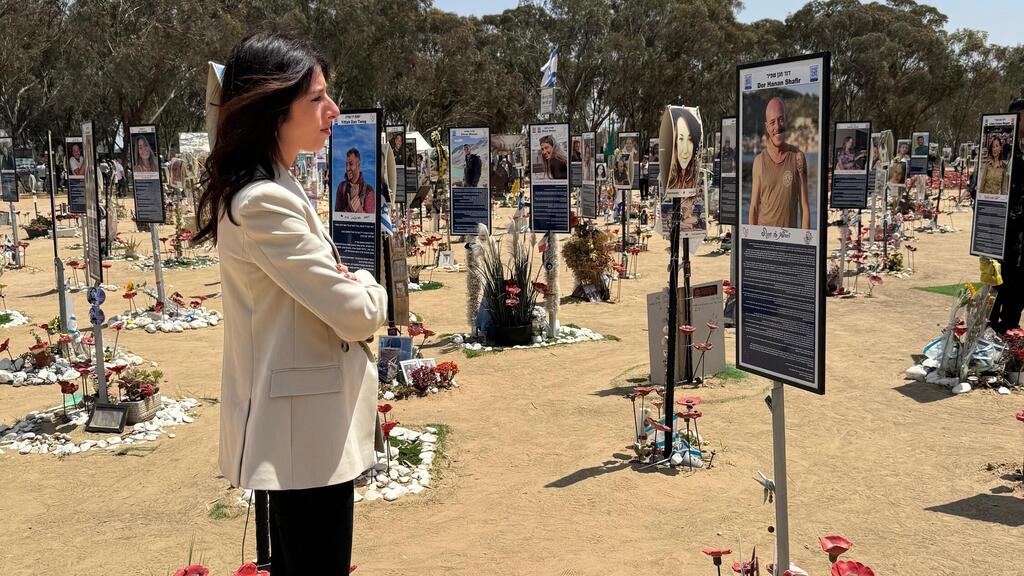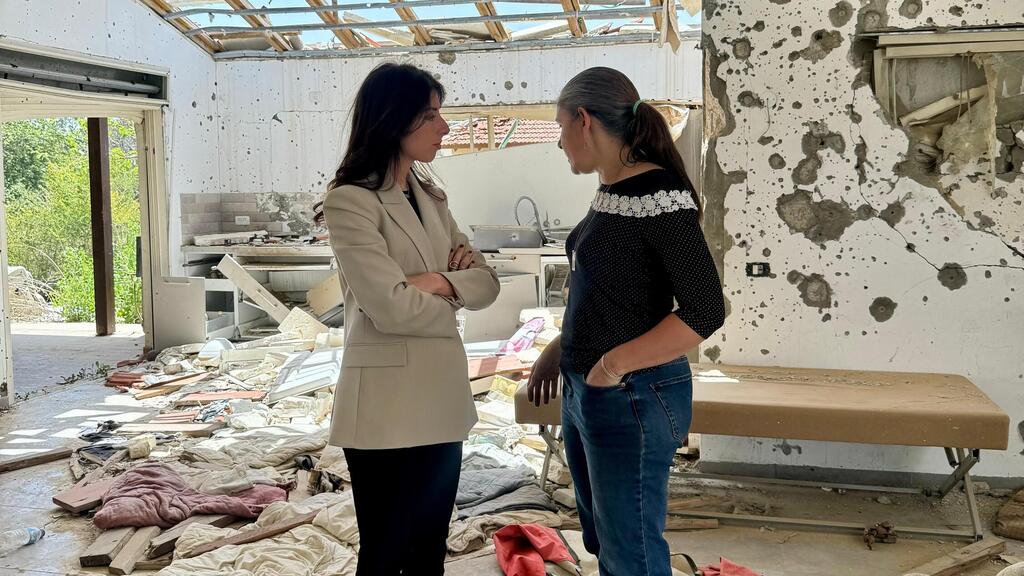Shannon Seban defines herself as French, a public figure battling antisemitism and advocating for equality, as well as Jewish. However, many in France reverse the order, identifying her first and foremost as Jewish before anything else. This reversal is rooted in the antisemitic rhetoric of her detractors, who often weaponize her Jewish background against her, particularly in the wake of the October 7 terrorist attacks and the ongoing war in the Middle East.
At just 29 years old, Seban has already established herself deeply in French politics. She has served as a council member in the city of Rosny-sous-Bois, a suburb of Paris, since 2020. Recently, she was appointed to a council role focused on combating discrimination and upholding France’s principle of secularism, a cornerstone of French governance. This principle aims to maintain a strict separation between religion and state, ensuring freedom of worship for all, while keeping public spaces secular and inclusive.
However, the principle of secularism has come under significant strain in the last decade due to waves of immigration and demographic changes in France. Interfaith tensions, coupled with the influence of the Middle Eastern conflict, have spilled into French society, making the preservation of secularism an increasingly challenging task.
Seban explains, "Throughout my political career, I’ve identified myself first and foremost as French, and only then as Jewish. Being French is my identity, while being Jewish was something private, confined to my family life. However, even before October 7, I was subjected to severe antisemitic attacks by neo-Nazi groups. They said I had a ‘Jewish nose threatening the world,’ called me a ‘dirty Jew,’ and hurled other horrific insults. I decided I wouldn’t stay silent—I would fight back. Not just through formal authorities but by sharing my story and exposing this wave of antisemitism to the world."
The shift to publicly embracing her Jewish identity
Before these attacks, Seban’s Jewish identity was not something she made public. "Nothing about me revealed my Jewishness. My name, Shannon, is of Irish origin, and even my last name, Seban, isn’t immediately identifiable as Jewish. I didn’t post holiday or Shabbat pictures on social media, and I kept my Jewish identity within my private family circle. But the antisemitic attacks and the rise of hatred against Jews led me to reconsider. I decided to step out and proudly declare that I am a proud French Jew. This is my full identity."
The antisemitic attacks intensified after October 7, particularly as Seban announced her candidacy for a parliamentary role. During a campaign visit to a local festival, she encountered hostility. "I thought it would be a good opportunity to meet voters and introduce myself. Within half an hour, my team advised me to leave. We were in a heavily Muslim area, and the atmosphere was very hostile after October 7. Pro-Palestinian demonstrators with flags began shouting that I was a ‘dirty Zionist.’ It was terrifying. In the days that followed, the police classified me as a threatened public figure and assigned me personal security. If a 29-year-old woman needs police protection just to run a political campaign, it’s clear that democracy is in serious danger."
Renewed commitment to fight antisemitism
Seban describes this experience as a turning point in her fight against antisemitism. "Since then, I’ve made it my mission to be one of the most prominent voices in this struggle. We cannot give up. This isn’t just a Jewish issue; I’m working to build interfaith coalitions with Christians and Muslims to launch joint campaigns. We all have a shared goal: to stand against antisemitism, discrimination, and anti-Muslim sentiment, and to promote equality and coexistence."
When asked whether this vision is overly idealistic, given the reality in France, she responds, "I am a proud Jew, but my goal is for everyone to maintain their unique identity while living in France without hatred, with mutual respect, and adherence to the law. We are all French, and that’s the foundation of our shared life here. I know the journey to achieving this will be long. Both the far-right and far-left pull society in radical directions, and some groups exploit the Israeli-Palestinian conflict to ignite tensions in France. Still, I believe in the importance of the center, which must unite us despite differing identities and opinions."
Jewish life in France after october 7
"The Jewish-French identity is a unique one," says Seban. "We are deeply rooted in French society and have been present in its culture, economy, media and every field for generations. However, since the war began, there’s been a noticeable rise in antisemitism and a shift in the atmosphere. People are more cautious, and there’s fear about displaying Jewish symbols in certain public spaces.
"But our mission is to remain united. Running away isn’t the answer. The Jewish community has a vital role in France, and I refuse to accept the position of a victim. Although we make up only 1% of the population, we are the target of 57% of religiously motivated attacks. This is a significant problem, and it’s the French government’s duty to protect and stand by the Jewish community."
The future of French Jewry
When asked whether there will still be a place for Jews in France in 20 years, Seban is resolute. "My family built everything they have here in France, and many other families have done the same. I am grateful to France and will never forget everything it has given me—the excellent institutions I studied in and the country’s values. I don’t want to leave France. I believe that, even though it’s difficult, we must fight and not give up. There is a critical mission now to combat antisemitism and strengthen ties with peace-seeking communities. Staying here doesn’t signify surrender, but rather a determination to fight for a better future for everyone."
Why politics?
At her young age, Seban could have chosen a private career path with far greater financial rewards, but she explains, "What I’m doing is not easy. It comes with personal and family sacrifices. Economically, I could be in a much better place if I’d chosen the private sector. But I feel like I’m on a mission. My father always taught me to fight for what’s right and just. Working a regular office job isn’t what drives me. Some family members tell me it’s dangerous, that it puts my safety and reputation at risk, but I feel I have no choice. Activism is in my soul—I want to bring change and be impactful. Yes, it comes at a personal cost. I face physical and online attacks, and I have worries. But it’s part of who I am."
Looking ahead
Seban is a member of President Macron’s party and has strong ties with prominent figures, including Prime Minister Élisabeth Borne and former Education Minister Gabriel Attal. "I plan to pursue roles where I can express my values and strengthen the country. It’s too early to say whether that will be at the local, national, or European level, but I will be there."
Get the Ynetnews app on your smartphone: Google Play: https://bit.ly/4eJ37pE | Apple App Store: https://bit.ly/3ZL7iNv
Seban recently concluded a visit to Israel, where she met with Knesset members, toured the Gaza border region, and visited affected communities. She is critical of certain actions by the Israeli government, such as hosting extreme right-wing European leaders at an anti-antisemitism conference. "It’s completely illogical to invite leaders from parties with candidates who express fascist views. The actions of Israel’s government affect Diaspora communities, and it must remember that."
Seban emphasizes that one of her key reasons for visiting Israel was to show solidarity during Holocaust Remembrance Day and Memorial Day, as well as to stand with hostage families. "This is the worst event to happen to Jews since the Holocaust, and it’s crucial to show the world the truth and fight denial. I also have a role as a European advisor in the fight against antisemitism, and this is part of my mission—to reveal the truth and fight for it everywhere possible."





